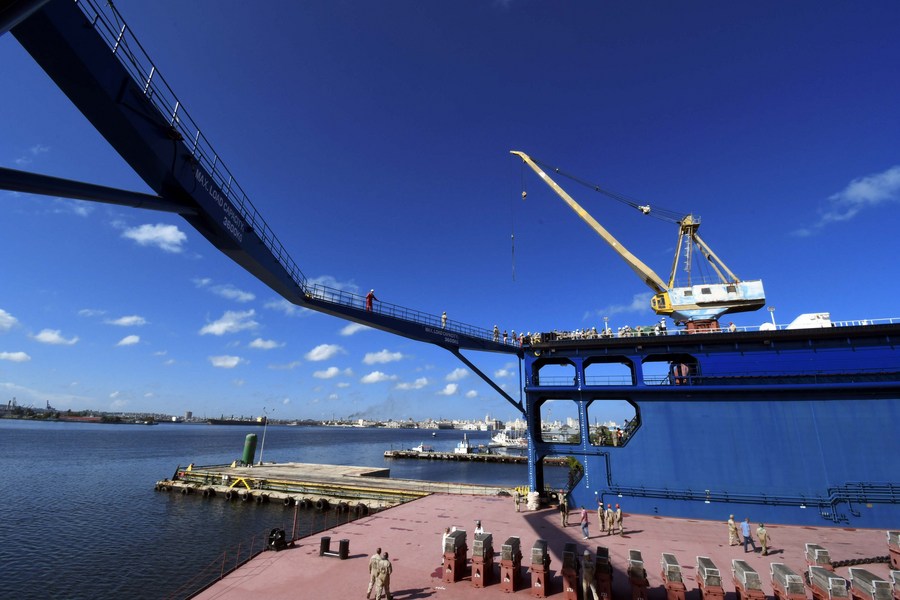Forum sets out new blueprint for global collaboration amid growing divisions

The partnership between China and Latin American and Caribbean countries — founded on mutual respect, equality and shared benefits — stands as a model for global collaboration, experts say.
This vision was reinforced on Tuesday as President Xi Jinping addressed the opening ceremony of the fourth ministerial meeting of the China-Community of Latin American and Caribbean States Forum in Beijing.
READ MORE: China, LAC states launch new cooperation drive
Speaking at the China National Convention Center, Xi said China firmly supports Latin American and Caribbean countries in pursuing development paths suited to their national conditions, safeguarding sovereignty and independence, and opposing external interference. China, he added, will work with LAC countries to support each other on issues central to their core interests and major concerns.
Xi stressed the need for China and LAC countries — important members of the Global South — to uphold solidarity and coordination and rise to global challenges with resolve, amid rising unilateralism and protectionism.
Carlos Martinez, a London-based commentator and co-editor of the platform Friends of Socialist China, said the forum's message is that LAC countries are sovereign and independent, not anyone's backyard.
"Unlike the United States, which is trying to sow discord in the region and impose hegemony over them, China is committed to promoting development and prosperity while respecting all countries' sovereignty and independence," he said.
China is now Latin America's second-largest trading partner, and the region has become the second-largest destination for Chinese investment abroad. Under the Belt and Road Initiative, more than 200 infrastructure projects have been implemented across Latin America and the Caribbean, creating more than 1 million jobs.
"China's cooperation with Latin America and the Caribbean is based on mutual respect, equality and mutual benefit, and sets an example for the world," Martinez said.
'Outstanding event'
Juan Gabriel Tokatlian, a professor of political science at Universidad Torcuato Di Tella in Buenos Aires, Argentina, hailed the forum's ministerial meeting in Beijing as "an outstanding event".
The gathering was a good case for cooperation between a major global power and a unified bloc from the Global South, and for political willingness to promote coexistence, peace and security, he said.
It also underscored the urgent need for a new global dialogue and showed that diplomacy is the most effective tool against bullying, revisionism and brinkmanship, he added.
In his speech on Tuesday, Xi announced that China stands ready to join hands with its LAC partners to launch five programs — focusing on solidarity, development, civilization, peace and people-to-people connectivity — to advance shared development and revitalization.
Maarij Farooq, deputy editor-in-chief at Pakistan Economic Net and Daily Ittehad Media Group, said the five programs aim at boosting development, revitalization and multilateral collaboration across the Global South.
He highlighted the people-to-people connectivity program as "a powerful testament to the importance of cultural diplomacy and mutual understanding in today's fragmented world".
"At a time when mistrust and misinformation often define global narratives, fostering genuine people-to-people ties can play a transformative role in reshaping perceptions and building sustainable peace," he said.
ALSO READ: Joint declaration, action plan new milestones for ties
Dicky Budiman, a scholar affiliated with Griffith University in Australia and YARSI University in Indonesia, said the peace program is both timely and relevant, with the potential to set a new benchmark on how global partnerships can redefine the architecture of health security in the 21st century.
"The peace program, if implemented with a strong emphasis on health system strengthening and inclusive governance, can become a cornerstone of regional stability and a model for South-South cooperation," he said.
"Integrated disaster governance — encompassing pandemics, natural disasters and climate-related crises — is foundational to both regional stability and global health diplomacy."
Yang Ran in Beijing contributed to this story.
Contact the writers at vivienxu@chinadailyapac.com


